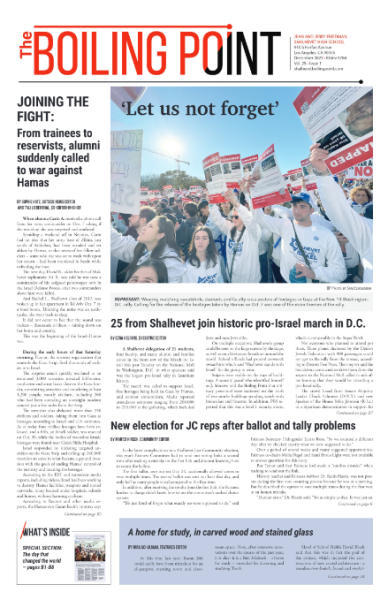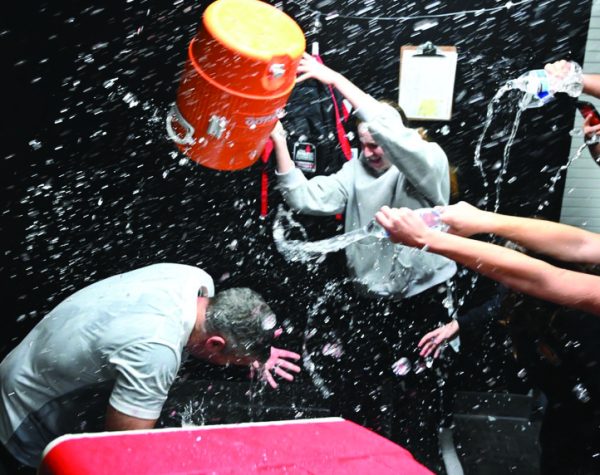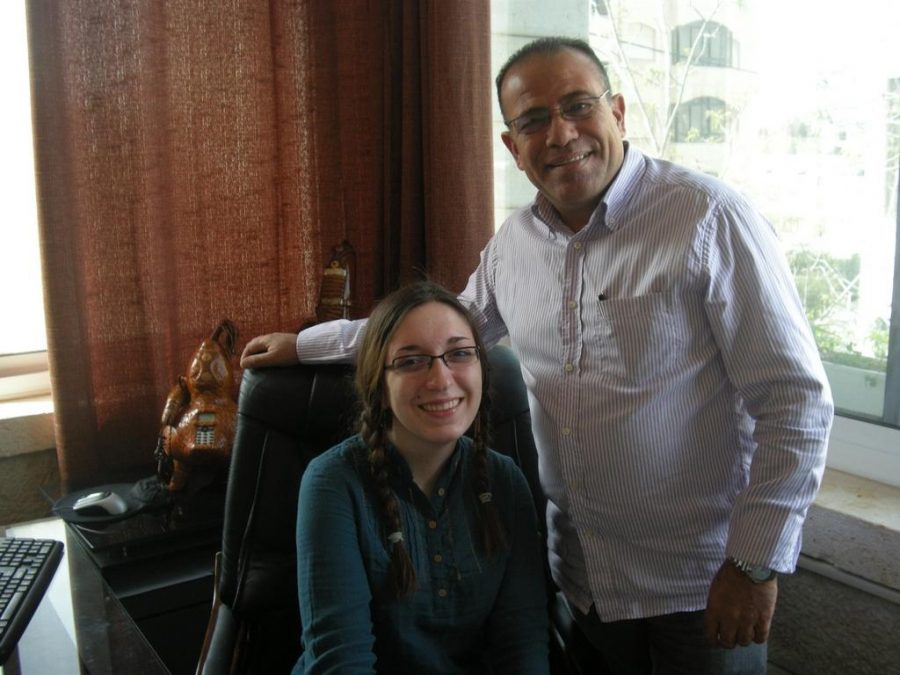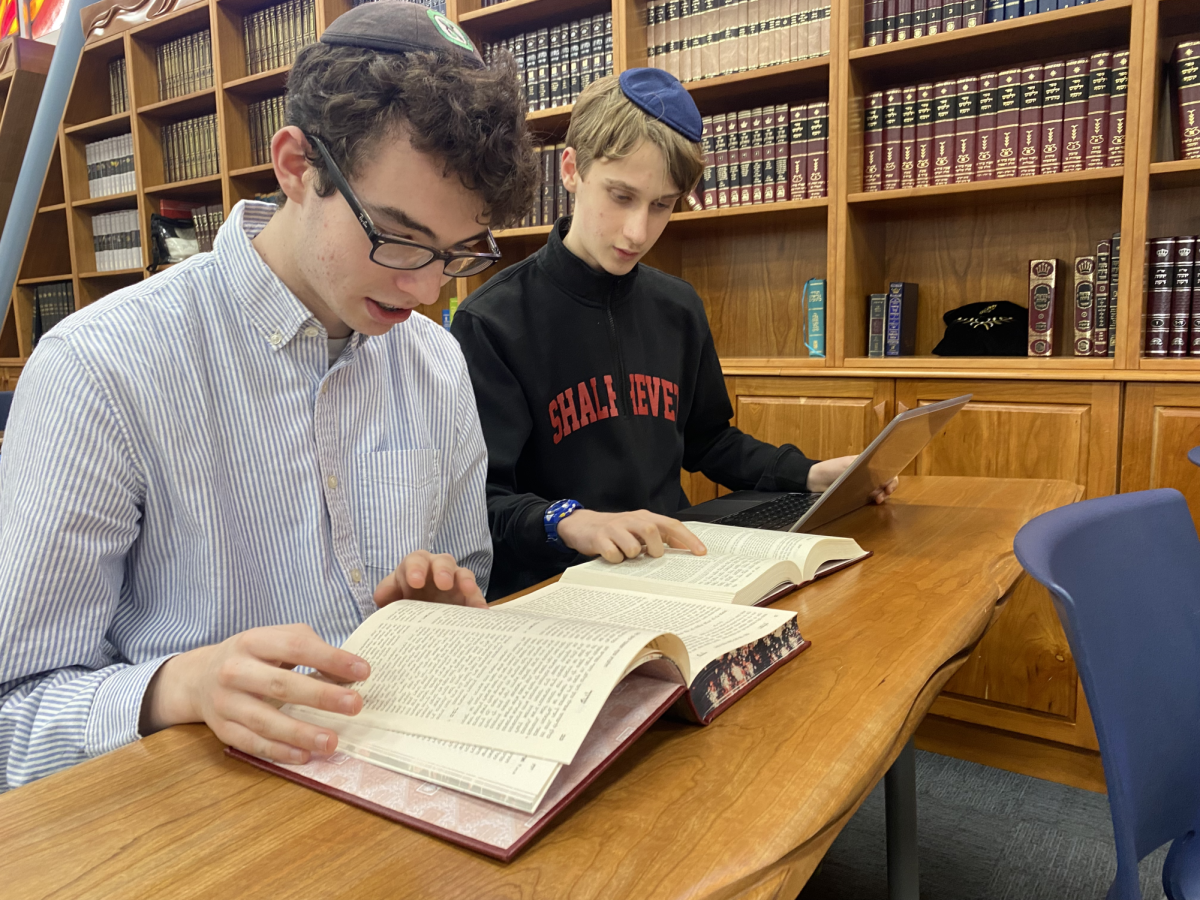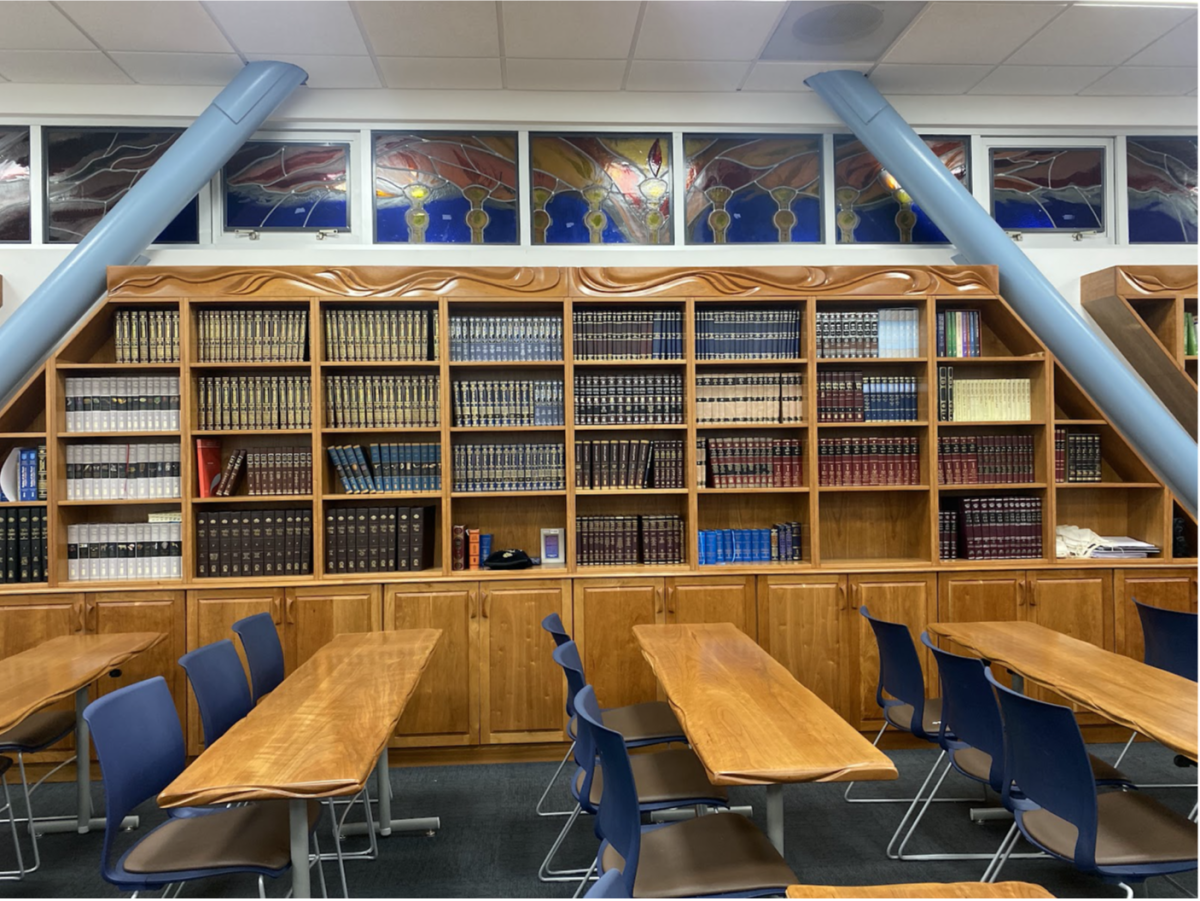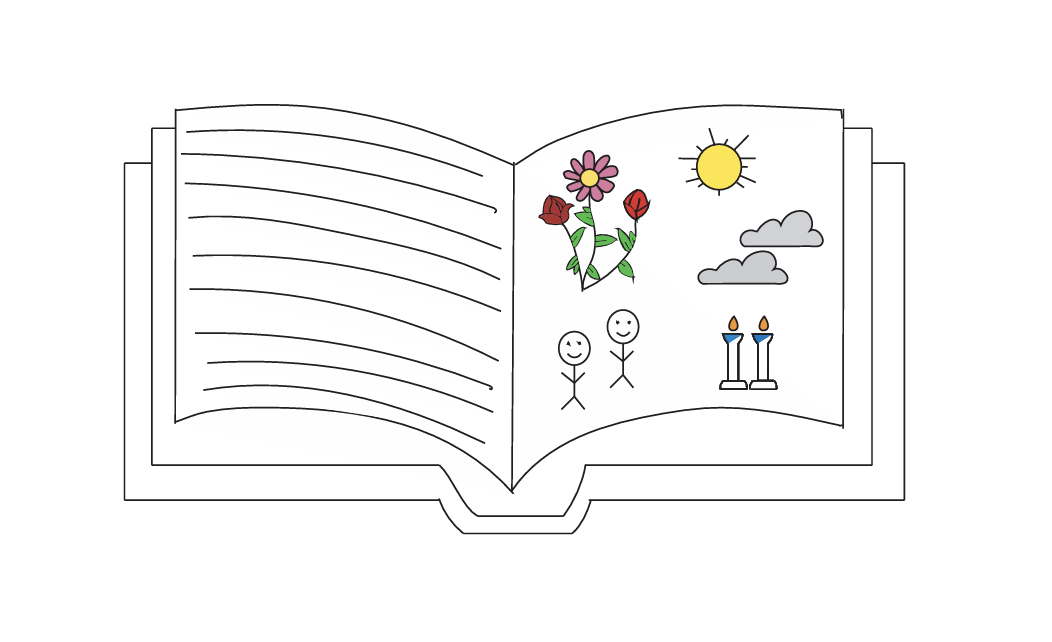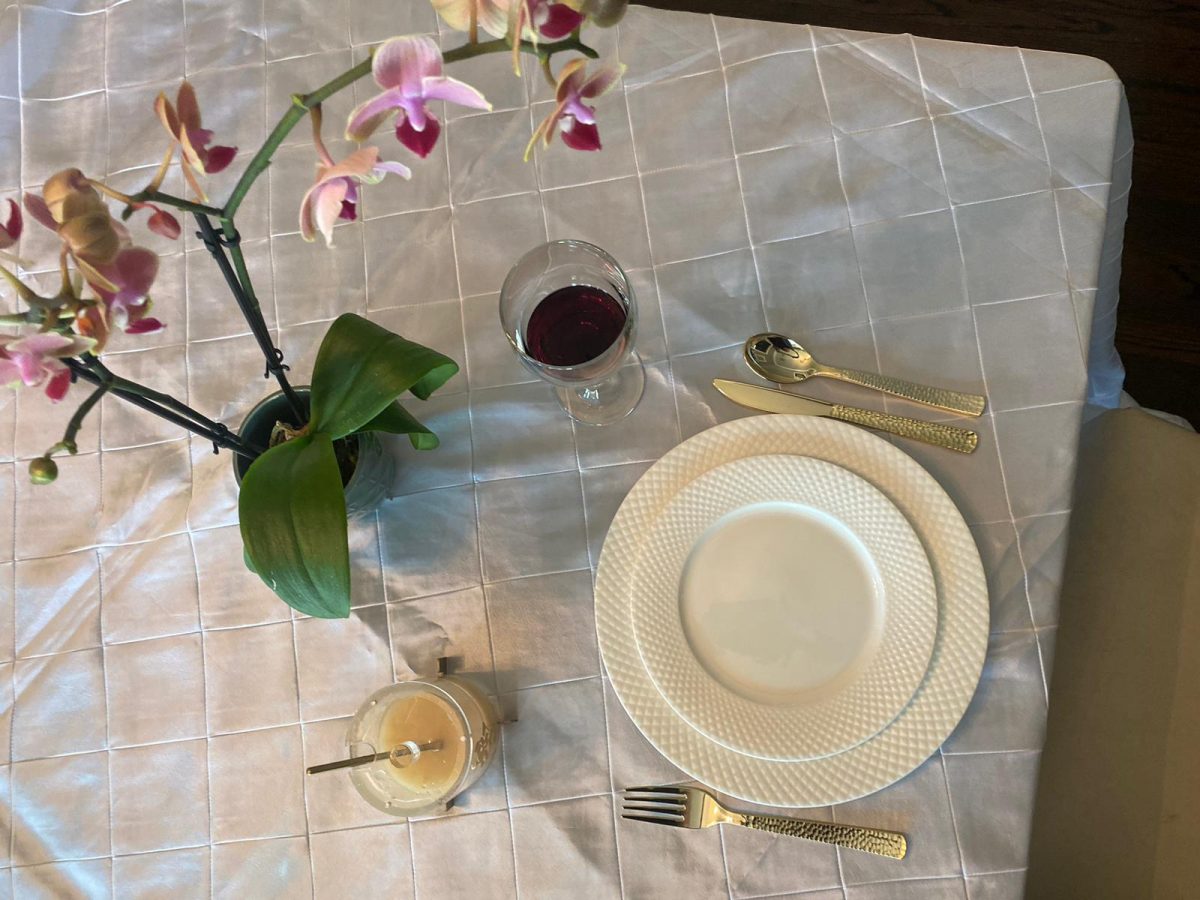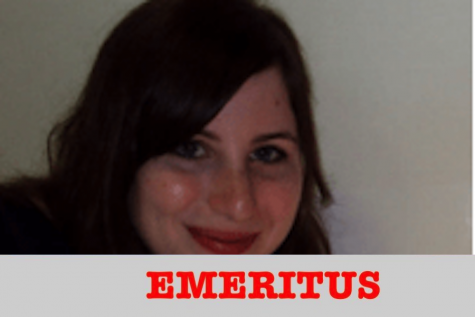As I write this article from my dorm room in Jerusalem, my favorite poster is smiling down on me. It is a big red poster featuring a photo of PM Bibi Netanyahu with bunny ears positioned haphazardly atop his balding head.
Below it hangs an advertisement that I picked up in Ramallah encouraging me to join The Palestinian Circus School. Other adornments include the Chanukah edition of “The Moshiach Times” (Mea Shearim), a sign gleefully asserting, “We are more than our marital status!” (Jerusalem), a bumper-sticker decreeing simply “Love Wins” (Bethlehem), and a photo of chickens, caged and mid-squawk, aimed at guilt-tripping Israelis into buying free-range eggs (Tel Aviv).
But contrary to what my schizophrenic-seeming décor might suggest, I’m currently studying at Midreshet Lindenbaum, a dati leumi, or religious-nationalist, institution that teaches Jewish law, philosophy, and custom. Frankly, a midrasha, or seminary, is the last place I expected to find myself in my gap year – let alone find myself actually enjoying it.
This is mostly due to the fact that I’m deeply uncertain about whether I qualify for either dati or leumi status. Yet it is because of these doubts, and the sinking feeling that I’d otherwise not be able to make informed decisions about them, that I chose to adjust my original plans and enroll here for the second semester.
I began my year in oppressive August heat at Hebrew University of Jerusalem, where I’d registered for their Freshman Gap Program. While kick-starting my summer with an intensive Hebrew ulpan course, I encountered a motley crew of characters, from Chanel-clad French vacationers to German monks to Israeli-Arab teenagers. It wasn’t long before I struck up a friendship with one of the latter, a hijab-rocking vegetarian with cavernous dimples and a gentle temperament.
Soon thereafter, she invited me over for a family meal at her home in Sur Bahr, a community in East Jerusalem, near the suburb of Talpiyot. Over the course of our dinner conversation, conducted somewhat awkwardly in elementary Hebrew, I learned that she would be the first member of her family to graduate from university. I also learned that I was the first American – and Jew – to ever be invited over. But hey, no pressure.
When ulpan came to an end, my classes in Arabic, Hebrew, and Middle East politics began. They were for the most part uneventful and unenlightening. My teachers were unengaging, and many of my peers were uninterested in the material.
I volunteered at a food kitchen about once a week, but bureaucracy and logistics thwarted my grand plans for an exciting internship. There were few activities planned for the overseas students, and they were mostly touristy field trips.
More than that, though, it frustrated me that I was stuck indoors while the very subject matter that I was studying – life in the Middle East – was raging on outside. I cringed at the thought that I would probably be more involved in Middle East politics on my university campus in the States than when I was actually located at the heart of the action.
Engaging in the types of cultural moshpits that I’d experienced in Sur Bahr became my primary mode of entertainment and education. I watched with equal parts horror and fascination as Chassidic Jews performed the ritual of kaparot* on the morning of Yom Kippur.They swung chickens over their heads as a means of transferring their transgressions, then slaughtered the “sin-ridden” poultry. I celebrated Jewish holidays in settlements, secular cities, and kibbutzim. I argued with cab drivers, bonded with shopkeepers, and wandered places that the State Department probably would have steered me away from (sorry, parents!).
But man cannot live on multi-cultural mingling alone. And thus, at the close of the semester, I bid adieu to Hebrew University, and headed skeptically, nervously, and a tiny bit excitedly into the seminary world. The idea of living and studying in a seminary for half a year was far scarier to me than visiting Sur Bahr or Mea Shearim.
A few stereotypes I brought with me about seminary life, off the top of my head: your rabbis will brainwash you. Your peers will be shallow, spoiled, and cookie-cutter. There is no room for debate. There is no room for creativity. No one survives without “flipping out.” You will be expected to make aliyah and get married ASAP.
These stereotypes may have shaped my initial attitude about what to expect, but I was relieved to find out that they were far from true, at least at Midreshest Lindenbaum.
As one of the few places that teach women gemarah, “Brovender’s,” as Lindenbaum is also known, is among the more progressive, open-minded seminaries. I’ve learned the philosophies and writings of Rambam, Heschel, Mendelssohn, and Buber, amongst others. Sometimes my teachers will put quotes from Kant and Kierkegaard alongside traditional rabbinic sources to prove a point or provide a contrast.
It’s not all fun and philosophy, though. A typical day runs from 8:30 a.m. to 10 at night with a few breaks in between, and the schedule is heavily focused on Torah and Gemarah rather than awesome German thinkers. I’ve also learned the halachot, or laws, of kashrut, Shabbat and modesty.
It can often be exhausting and agitating to learn Jewish texts for hours at a time, whether they’re stories straight from the Torah or the in-depth bickering of long-deceased rabbis. Some days, I think of this learning as a difficult puzzle or mind-game, and other days, I try to give it more weight because I know that it helps form the basis of my religion.
Maybe I don’t wake up every morning excited to immerse myself in debate over whether 13,000 gold coins is a legitimate price to pay for your wife if she’s taken captive, or whatever the topic is that we’re discussing in gemarah that day. But ultimately, what I’m learning, from the big ideas to the minutiae, is information I’m glad to be taught. As frustrating as it is, there’s no Sparknotes booklet for Judaism; the only thing to do is learn and experience as much as you can and then use that knowledge as a jumping off point for future decisions.
Which isn’t to say that I subscribe to everything I’m being taught at Brovenders. But even if I don’t love all of what* I’m learning, I love that* I’m learning. And when things get a bit too dati leumi for my taste, I make time to visit some of my old stomping grounds around the region or just take a break in my room. It only takes a bus stop, or even a flight of stairs, to make me feel a world away. Seeing that poster of Bibi, bunny ears and all, restores my sanity.
I know that many of my choices and opinions – political, religious and otherwise – will be more educated for my having taken this year in Israel. What will those choices be, and where will they take me? I have no clue, and I’m trying not to think about it too much. For my last couple of weeks in Israel, I just plan to keep learning and adventuring as much as I can — and hopefully, collecting some more posters for my wall along the way.











